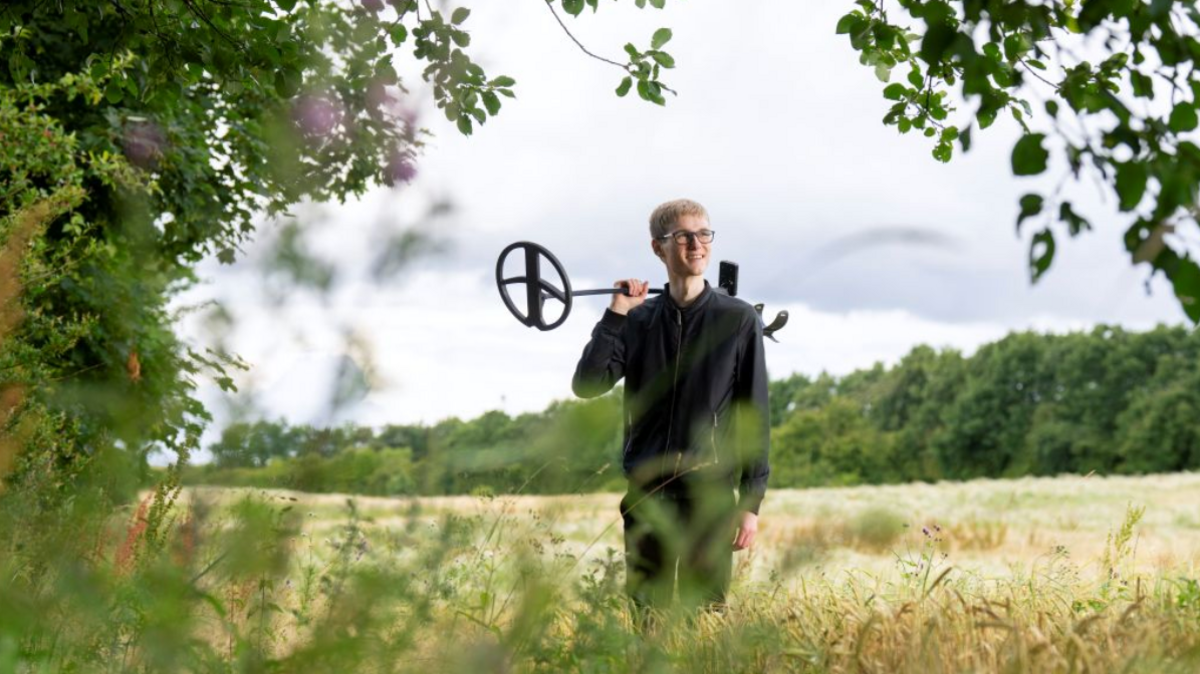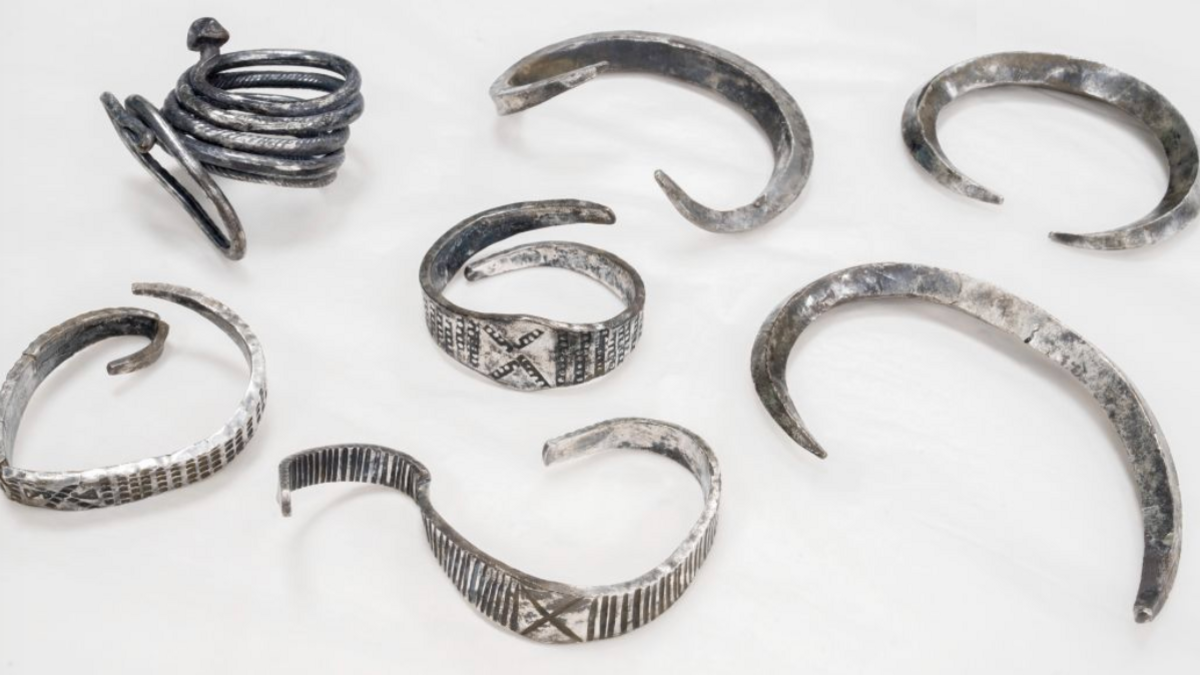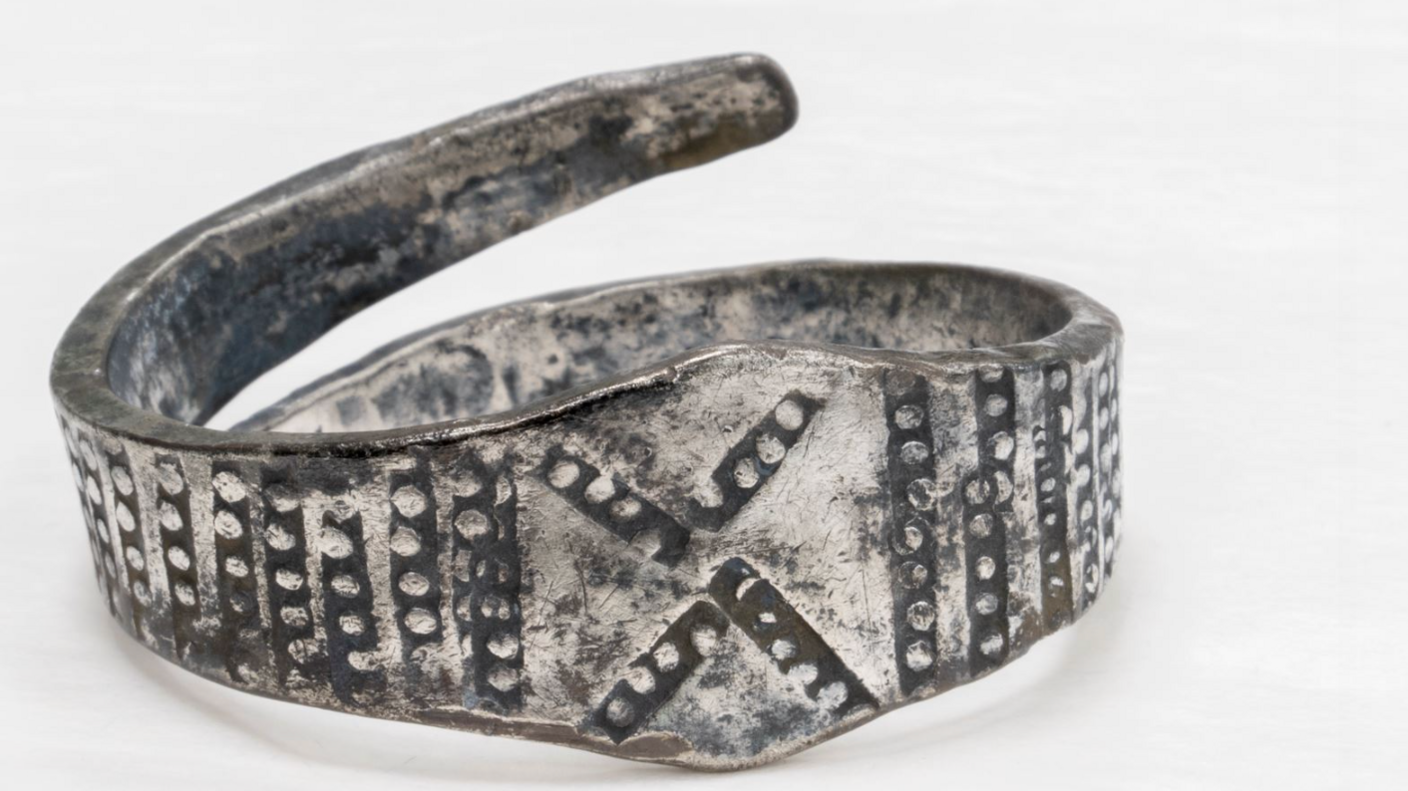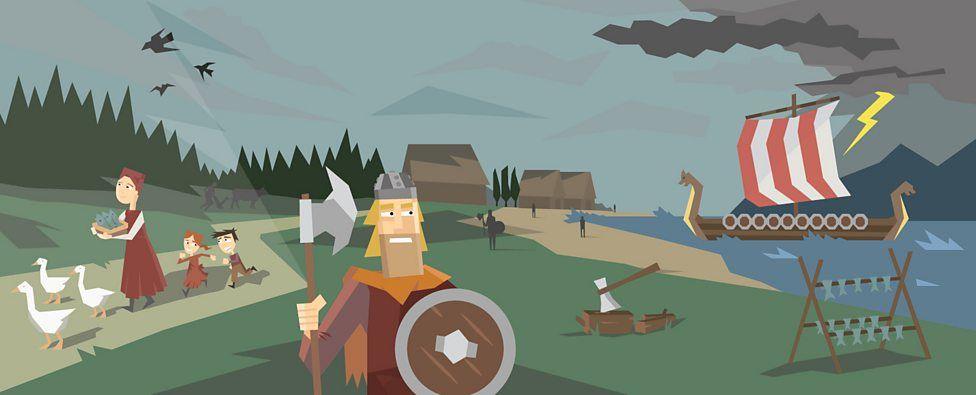Student finds rare Viking treasures with metal detector

- Published
A 22-year-old archaeology student in Denmark, has discovered seven Viking bracelets while using his metal detector.
Gustav Bruunsgaard was exploring farmland near Elsted, in the north of the country, when his detector started beeping.
He used a small spade to dig in the area and found one silver bracelet.
He visited the same site a few days later and found 6 more pieces of jewellery.
Stamps celebrate UK Viking history
- Published15 February 2024
Combs and board games reveal our Viking past
- Published2 April 2024
Viking silver found by metal detector declared 'treasure'
- Published29 May 2024

Jewellery used as money for Vikings
This latest discovery is one of several that have shown traces of Viking age settlements in the Danish region, known as Aarhus.
It's thought that the jewellery, which is roughly 1,000 years old, could've been used as a form of money, known as hacksilver, where items were swapped as payment for other things.
Historians think that the area could've been a hub where Vikings would visit to trade and exchange goods.

Most of the bracelets are thought to have been made in Denmark. However, one of the coiled rings has a similar style to Russian and Ukrainian bracelets.
The design is also thought to have inspired similar bangles found in Ireland, where they later became popular.
The bracelets are currently on display at the Moesgaard Museum in Denmark.
One historian at the museum, Kapser H.Anderson, said this is a ‘’fantastically interesting find’’ and connects Aarhus with Russia and Ukraine in the east, and the British Isles.
Who were the Vikings?

The Viking age was from about AD700 to 1100.
During this time, many Vikings left their homes in Scandinavia and travelled by boat to other countries, like Britain and Ireland, where they settled in areas with their families and farmed the land.
The people of Britain called the invaders 'Danes', but they came from Norway and Sweden as well as Denmark.
Vikings sailed the seas trading goods.
They were also fearsome warriors and often raided religious buildings called monasteries to steal treasure.
The word Viking actually means ‘a pirate raid’.
- Attribution
